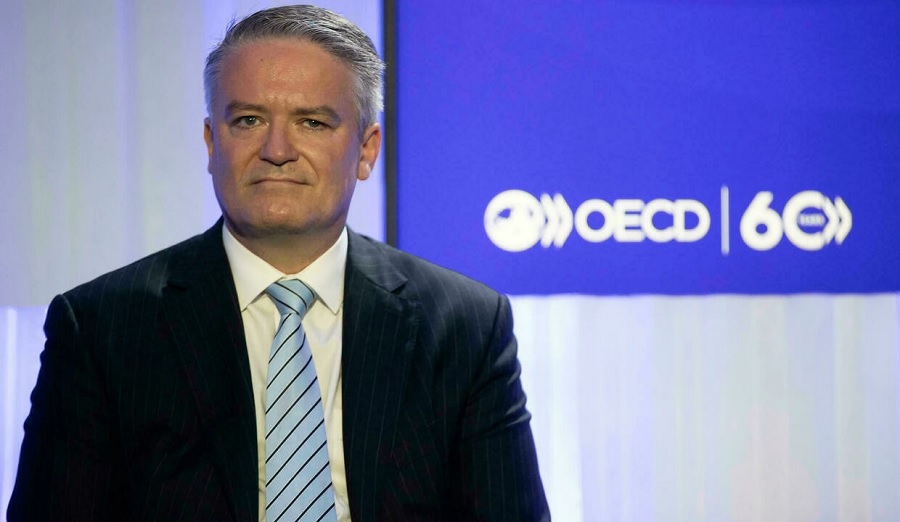RIO DE JANEIRO, BRAZIL – Brazil’s accession to the OECD is back on the agenda this week, during the Organization for Economic Cooperation and Development’s annual ministerial meeting which began on Tuesday, October 5, in Paris.
With the coronavirus pandemic and a diplomatic deadlock between Americans and Europeans on the issue, the accession of new countries has been paralyzed for months.
At the opening of the event, the Secretary-General of the organization Mathias Cormann reinforced the goal of opening the entity’s doors to six new countries: Argentina, Brazil, Bulgaria, Croatia, Peru, and Romania. He said membership represents “the most direct and effective way to ensure the best application of our common values, principles, and standards.”
“Every market economy-based democracy that submits a genuine interest in joining the OECD, by showing a genuine commitment to pursuing the reforms needed to meet all OECD requirements, should have the opportunity to do so,” he argued, before stating that the current 6 candidates “have shown clear progress” by adopting the standards recommended by the entity.

“They have all been waiting for a response for several years. We need to decide on the applications,” he stressed. “In the weeks following this meeting, I intend to work with members to find a way forward so countries can have their applications reviewed in an appropriate and technical process.”
AMERICAN POSITION
The big question is how the United States will position itself on the issue henceforth. Since assuming the U.S. presidency, Joe Biden has yet to clarify whether he is in favor of greater openness or whether he will maintain restrictions on the entry of more members, as Donald Trump did with respect to Eastern European candidates.
On Tuesday, U.S. Secretary of State Antony Blinken – who co-chairs the ministerial meeting – signaled an opening. He stressed the organization’s historic importance in promoting democracy worldwide in the face of the emergence of nationalist regimes.
“The United States is committed to seeing the organization continue to grow stronger. We stand ready to work with members to build consensus moving forward,” he said. “Candidate countries that share our values and meet the OECD’s highest standards may continue on their path to membership. (…) No matter how many significant challenges we face, they will be overcome when faced together.”
Accession processes of more countries are not on the event’s official agenda, and announcements to that effect would be surprising. But the issue will be addressed in the meetings, taking place behind closed doors for two days.
“BEST MOMENT” FOR BRAZIL, ECONOMY EXECUTIVE SECRETARY SAYS
Brazil’s Ministry of Economy Executive Secretary Marcelo Guaranys is one of Brasilia’s representatives at the meeting. The country has been trying to join the organization since 2017 and, in the past four years, tripled its accessions to the entity’s legal instruments, reaching 100 out of 247 aspects.
“I think the positive signals for us to unlock this are very important. Brazil has been very close to the OECD for many years, we have shared values for many years,” he stressed. “It is very important to guide our reforms and changes in our public policies, to improve our business environment, make our economy more digital, increase the sustainability of our economy,” he explained.
Asked if Brazil’s current negative image abroad – mainly regarding environmental policy, but also due to its failures in fighting the pandemic and the threats to democracy by President Jair Bolsonaro – could damage the country’s candidacy, Guaranys said that “we are at the best moment in the past 20 years in terms of alignment with the OECD.”
“Obviously, we debate about how our information is communicated abroad. But I think there is no doubt about our democratic alignments. I think we have given clear indications of the soundness of our institutions,” he said. “The pandemic was completely unexpected for everyone, and in the Ministry we played a crucial role in mitigating its economic impacts. Our programs were seen, valued and praised all over the world, not only the emergency aid, but the emergency benefit for maintaining employment.”
However, the Executive Secretary recognizes that more communication efforts must be made on the environmental issue. “We have to actually improve communication about our sustainability policies – which, in fact, have been greatly criticized abroad. Maybe not for the whole, but more specifically for deforestation. I think that today this would be the major political point in the OECD discussions,” he said.
The Brazilian delegation also included Chief of Staff Ciro Nogueira, Minister of Foreign Affairs Carlos Alberto Franco França, and the Minister of Citizenship João Roma. The meeting ended on Wednesday, October 6.

